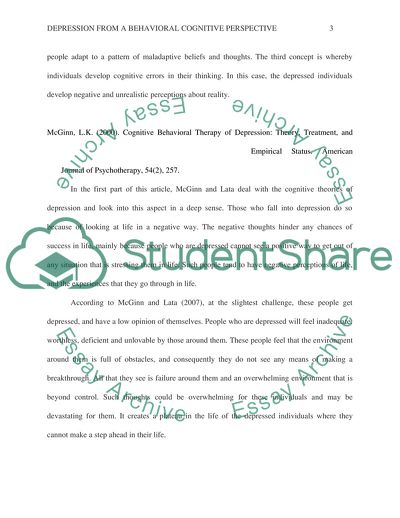Cite this document
(Depression from Cognitive-Behavioral Perspective Coursework Example | Topics and Well Written Essays - 1500 words, n.d.)
Depression from Cognitive-Behavioral Perspective Coursework Example | Topics and Well Written Essays - 1500 words. https://studentshare.org/psychology/1853457-depression-from-cognitive-behavioral-perspective
Depression from Cognitive-Behavioral Perspective Coursework Example | Topics and Well Written Essays - 1500 words. https://studentshare.org/psychology/1853457-depression-from-cognitive-behavioral-perspective
(Depression from Cognitive-Behavioral Perspective Coursework Example | Topics and Well Written Essays - 1500 Words)
Depression from Cognitive-Behavioral Perspective Coursework Example | Topics and Well Written Essays - 1500 Words. https://studentshare.org/psychology/1853457-depression-from-cognitive-behavioral-perspective.
Depression from Cognitive-Behavioral Perspective Coursework Example | Topics and Well Written Essays - 1500 Words. https://studentshare.org/psychology/1853457-depression-from-cognitive-behavioral-perspective.
“Depression from Cognitive-Behavioral Perspective Coursework Example | Topics and Well Written Essays - 1500 Words”. https://studentshare.org/psychology/1853457-depression-from-cognitive-behavioral-perspective.


